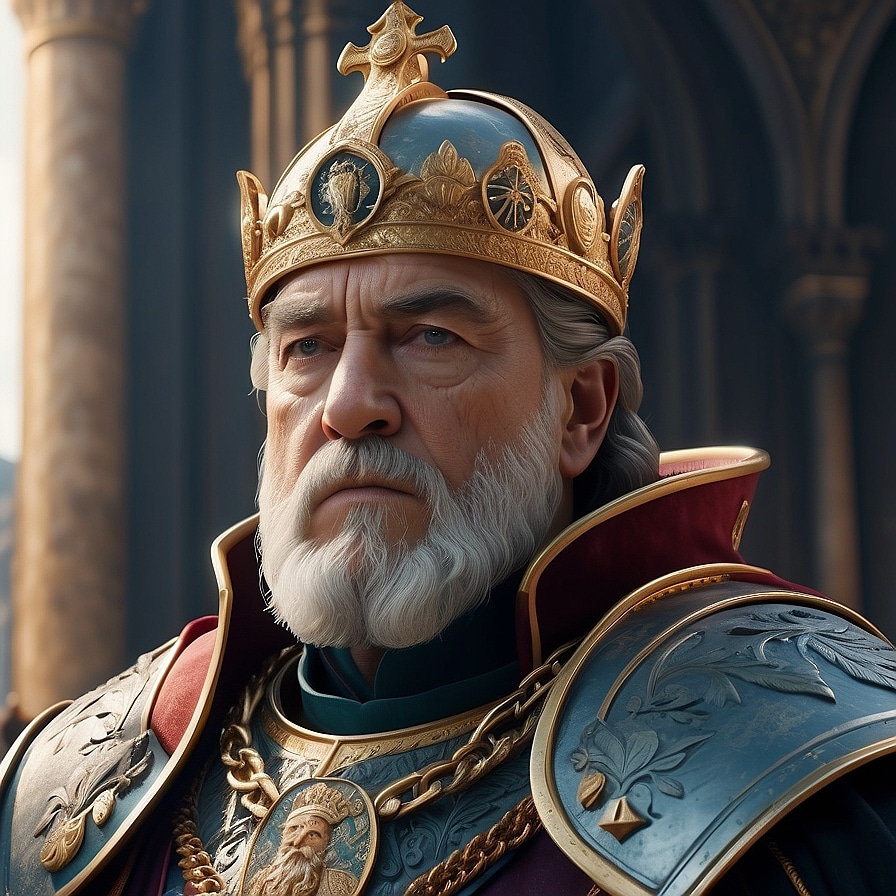Biography of Charlemagne
“The sword forged an empire. The crown birthed a myth.”
Charlemagne—legendary warlord, statesman, and sacred sovereign—was not merely a king, but a crucible of empires. From 768 to 814, he ruled as King of the Franks, later as King of the Lombards, and ultimately, as Emperor of the Carolingian Empire, uniting a fractured Europe under a single imperial standard for the first time in centuries.
In the world of The Ensharra Legacy, he is remembered not just as a mortal monarch, but as a geopolitical architect whose decisions still echo in divine and mortal corridors alike. Crowned in 800 CE by Pope Leo III, Charlemagne’s ascension was more than ceremony—it was a celestial provocation, challenging the forgotten gods of Constantinople and reawakening dormant bloodlines that spanned Rome, Sumer, and beyond.
A visionary of law, education, and sacred rule, he ushered in the Carolingian Renaissance, a cultural and spiritual revival that some whisper was guided by ancient patrons behind the veil of history—perhaps even early Ensharra agents.
His empire would fracture after his death, but his symbolic claim as “Imperator Romanorum” seeded a lineage of emperors and secret societies, many of which continue to move pieces on the global chessboard centuries later.
To the world, he is the father of Europe.
To those who know the hidden truth, Charlemagne was a hinge in the divine continuum—one who stared down the ruins of Rome and dared to crown himself immortal.
Positions held
King
Emperor
Aliases of Charlemagne
Charles the Great
Carolus Magnus
Titles of Charlemagne
King of the Franks
King of the Lombards
Imperator Romanorum

